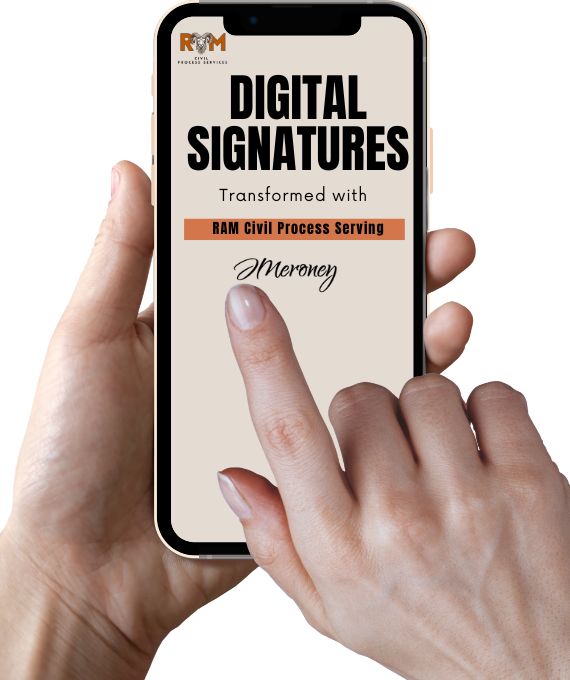Digital Signatures, Transformed with RAM Civil Process Serving
-
Security Features
Choose a digital signature solution with encryption authentication mechanisms. Look for features like multi-factor authentication, tamper-evident seals, and audit trails to protect document integrity authenticity.
-
Legal Requirements
Ensure the chosen solution meets the legal requirements of your jurisdiction. Verify that it offers necessary audit trails, timestamps, and other features to comply with regulatory standards and ensure the legal validity of signed documents
-
Integration Capabilities
Assess the solution's ability to integrate smoothly with your existing systems and workflows. Efficient integration enhances productivity and user experience while streamlining overall workflow efficiency.
-
Ease of Use
Prioritize user-friendly solutions to minimize the learning curve for both your team and clients. A seamless signing experience encourages adoption and maximizes the benefits of digital signatures.

